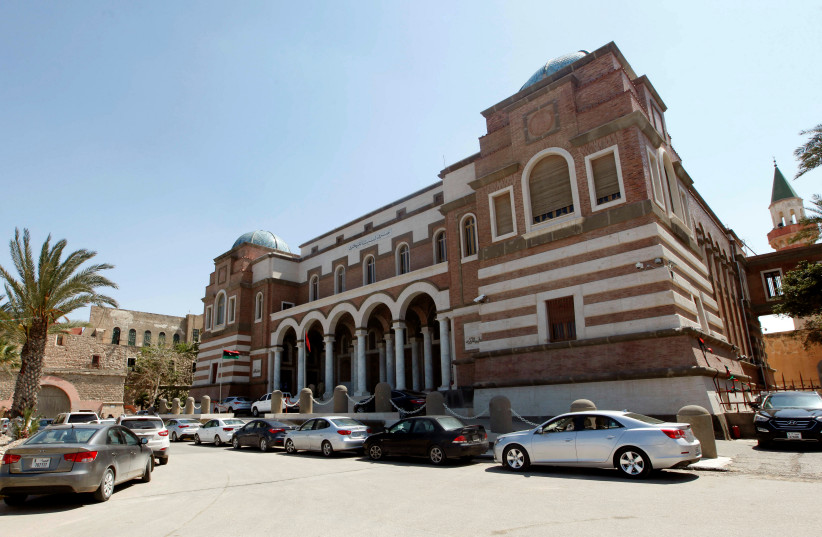Key factions involved in Libya met in Cairo over the weekend, according to several reports in the region. These include President Mohamed Menfi of the Presidential Council, the Speaker of the House of Representatives Aqilah Saleh, and Khalifa Haftar, who runs eastern Libya. They are all involved in discussions that could lead to some kind continued progress in a brokered settlement to end years of conflict in Libya. Egypt backs the talks and UN envoy Abdoulaye Bathily has backed the dialogue.
These tripartite talks are a continuation of talks over the past year. In January Haftar and Saleh also met in Egypt. At the time, Egyptian and Libyan sources told Asharq Al-Awsat “that they will meet with Egyptian officials for talks on several Libyan political and military issues.”
The Libya Observer mentioned the recent round of talks. Egypt has focused on these talks. Egypt recently had a presidential election and its long-time leader President Abdel Fattah al-Sisi looks to remain in power. Egyptian intelligence chief Abbas Kamel has been focused on the Libya talks.
According to Al-Ain media the sides agreed on a statement, that “stressed the importance of the efforts led by the United Nations mission, and the importance of supporting a balanced Libyan-Libyan solution, in a way that achieves the aspirations and hopes of the Libyan people to hold simultaneous presidential and parliamentary elections.” They also welcomed the UN calls for dialogue.
Al-Ain media, which is based in the UAE, noted that “the meeting, hosted by Cairo, aims to urge Aqilah Saleh and Haftar to participate in the international dialogue, in addition to discussing the reconstruction of Derna, after receiving the World Bank report in particular.” Derna was harmed by floods this year. Aqilah Saleh recently was in Turkey where he met with the Turkish leadership.

Libya has been divided since Qadaffi's fall in 2011
Turkey sent forces to Libya several years ago and also signed a maritime deal with the embattled government. The country has been divided since the fall of Qadaffi in 2011. The chaos that unfolded in Libya and Syria during the Arab Spring led Egypt’s current leadership to take a different path, removing the Muslim Brotherhood from power in 2013, and creating a more authoritarian model.
It is not clear what will come next in Libya. Several countries in the region have moved from chaos and instability back to some forms of ceasefire and more peaceful relations. The Syrian regime, for instance, has returned to the Arab League even though it doesn’t control northern or eastern Syria.
Iraq has defeated ISIS but Iranian-backed militias in Iraq spread chaos. Yemen is still divided and despite a ceasefire, the Iran-backed Houthis have upped attacks on ships. Libya is one of these countries that now sits at a crossroads in the region toward possible reconciliation. Sudan, another country in the region, is still divided by civil war.
